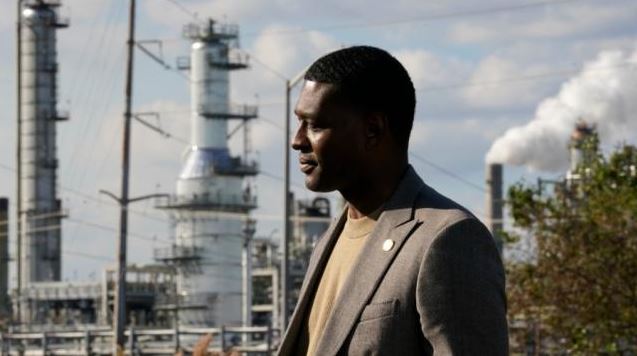On Thursday, the administration of President Joe Biden introduced a new law that would drastically cut the amount of harmful air pollutants that chemical factories release into the atmosphere. This is a move that environmental groups have projected would considerably lower the health hazards faced by individuals who live in close proximity to industrial facilities.
Carcinogens such as ethylene oxide, which is found in antifreeze, and chloroprene, which is used to manufacture the rubber that is found in footwear, are two of the toxic pollutants that are included in the proposed regulation that will be implemented by the Environmental Protection Agency (EPA). Chemical facilities will be required to monitor and minimise the quantity of harmful pollutants that are discharged into the air.
The majority of companies that produce chemicals would be impacted by the proposed regulation, which would apply to over 200 plants located in states like Texas and Louisiana, as well as other locations along the Gulf Coast, the Ohio River Valley, and West Virginia. It would bring up to date a number of rules that control emissions from chemical factories, some of which have not had their standards raised in over twenty years.
The measure is a component of the effort made by the Biden administration to address the disproportionate effect of environmental dangers that are experienced by communities that are in close proximity to chemical facilities. Fenceline communities are often low-income, minority neighbourhoods that have increased incidences of asthma, cancer, and other health issues. Their name comes from their proximity to a boundary line.
The Environmental Protection Agency and the Department of Justice filed a lawsuit against a chemical factory in St. John the Baptist Parish called Denka Performance Elastomer in February, alleging that the company had been releasing hazardous doses of a carcinogenic chemical called chloroprene near residential areas and educational institutions. It was concluded in 2016 by federal officials that chloroprene emissions from the Denka factory contributed to the greatest cancer risk of any location in the United States.
Large chemical plants that produce chemicals such as ethylene oxide, chloroprene, and benzene, which are used in products such as plastics, vinyl flooring, and PVC piping, would be required by the rule to rigorously tighten controls and processes within their facilities in order to limit emissions of the chemicals into the communities that are in close proximity to the plants.
In addition, they would need to do routine inspections not just of the smokestacks and vents at the industrial facilities, but also the property lines of the plants to determine whether or not the chemicals of concern are present there. Monitoring of this kind along fencelines is necessary at petroleum refineries in a manner somewhat dissimilar to that.
However, the trade association said that it is “particularly concerned” about the agency’s actions around ethylene oxide, adding that it is used in the production of numerous goods, such as batteries for electric cars, and that it is one of the main concerns of the group. In addition to this, the Food and Drug Administration of the United States considers it to be one of the few methods that are capable of effectively sterilising medical equipment.
At the announcement, Mr. Regan was joined at the event by Roger Gingles, the secretary of Louisiana’s Department of Environmental Quality. Mr. Gingles voiced support for the new regulation, but with some reservations.
The proposed regulation is an attempt to remedy a federal regulatory system that, for decades, primarily aimed to address the affects of one chemical in isolation, according to Judith Enck, a former E.P.A. regional administrator. Enck said that the proposed rule is an effort to reform the system.

